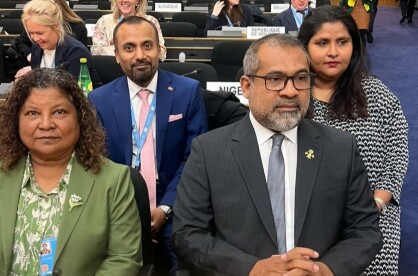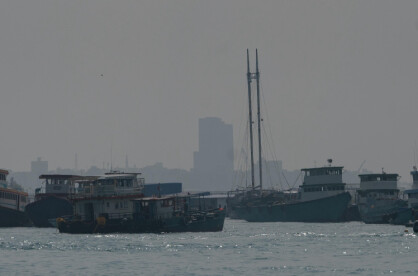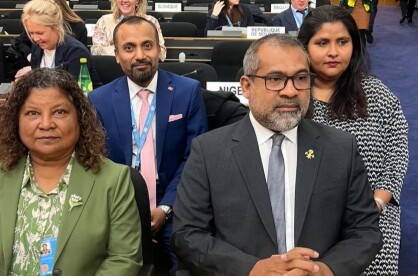The month of Ramadan is a time of intense spiritual devotion in Islamic cultures, and doubles as a catalyst for societal connection for Muslim communities all over the world. It is also a time of culinary extravagance in some communities, notable even in the Maldives. The Maldivian community prepares well in advance for the fasting season, by stocking up on staple foods and other ingredients in bulk weeks prior to Ramadan.
Staples such as rice, flour and sugar are major local imports. Import and distribution of staple foods is a responsibility of the State Trading Organization (STO); a publicly listed corporation with the majority owned by the Maldivian government. STO’s efforts to procure low-cost, high-quality product have played a role in maintaining widely affordable prices for these items for many years.
Additionally, the Maldivian government subsidises products imported by STO to keep the prices at an affordable level for all earning classes of the Maldives. The government pays a portion of the cost of these food items to allow consumers to obtain them at much lower rates.
For example, lime is a common ingredient used in many Maldivian dishes, and they were sold for as much as MVR120 per kilo before stocks were depleted. To counter this shortage, STO have very recently begun importing limes and distributing them at MVR45 per kilo.
The food subsidy policy is a blanket subsidy that covers all relevant products that are distributed to all consumers, regardless of income level and spending capability of the consumer. Granted that this fixed rate allows low-income households to obtain necessities, the fixed price is also available to wealthy households and businesses as well. Studies have shown that a large proportion of subsidised goods are purchased by the tourism sector, and roughly a tenth of subsidised goods are consumed by low-income households.
According to the budget details released by the Ministry of Finance last year, MVR284 million is allocated to be spent by the government solely on food subsidies.
Recently, prices of these staple foods have been on the rise. Global events such as the COVID-19 pandemic, armed conflicts in the Eastern-European region and the recent deterioration of the Sri Lankan economy are all affecting the prices of food that are imported by the Maldives. Sri Lanka is the closest neighbouring country to the Maldives, and the apparent downfall of its economy has left a substantial gap in staple imports to the Maldives.
The rampant disruption of shipping routes and interruption of production affecting source countries has dwindled the supply of essential food items to the Maldives. This has led to spikes in prices as well as inability to meet the needs of many consumers in the country. Wheat flour, parboiled rice and crystal white sugar are the most consumed variants in the Maldives, mostly due to affordability. However, with the increased demand during Ramadan and other external factors, these three items are already out of stock according to STO’s online shopping portal.
Further measures should ideally be implemented to ascertain the provision of staple food to the Maldivian people.
The country is currently unable to independently grow, harvest and provide products that are consumed daily for sustenance. Cutting-edge hydroponic systems have shown capabilities of growing almost any crop sustainably in any location, regardless of climate or geographical limitations. The Maldives can easily begin to produce and provide many crops that were previously impossible to grow in the natural equatorial climate. Additionally, there are many islands, inhabited and otherwise, within the Maldives that collectively have ample space to undertake these endeavors on a large scale. With proper usage of available land and resources, most of the imported staple food can be locally sourced and thus the cost drastically decreased.
Considering the volatile nature of the global climate and the widespread political unrest, discovering new avenues for food supply is imperative. Collection of relevant data and electing a wider range of import origins would greatly reduce dependency on a single foreign region, therefore securing the supply of food for the sustenance of the country.
Reassessment of the food subsidy policies may also be in order, as many world institutions have urged the Maldivian government to target subsidies to lower income brackets, instead of providing a blanket subsidy to anyone who wants to buy the product. Targeted subsidies have proven to be more cost-efficient and more thorough in providing affordable food to low-income households.
The Finance Ministry has announced that there will be changes to these policies in 2022, however a change is yet to be seen.







